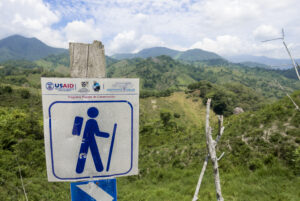In early November, the United States Government Accountability Office (GAO) released a report assessing the implementation status of labor provisions and initiatives negotiated as part of “Free Trade” Agreements (FTAs) with various Latin American countries. The report looked at agreements signed with Colombia and Peru, as well as the Central American regional agreement that includes El Salvador, Guatemala, and Honduras. The report recognizes that governments in the region have taken important steps to deal with labor commitments. But it concludes that more monitoring and more vigorous enforcement are required.
A main part of the GAO’s assessment addressed compliance with the U.S.-Colombia Labor Action Plan (LAP), whose implementation has been partial and incomplete.
Many challenges remain with the LAP. The GAO noted that the U.S. agencies responsible for enforcing labor provisions, the Office of the U.S. Trade Representative (USTR) and the U.S. Department of Labor (DOL), both reported that Colombia has “made meaningful progress” with certain aspects of the plan, such as the creation of institutions and changes in legislation, including the establishment of criminal penalties for efforts to undermine collective bargaining rights. Unfortunately, the enforcement of these actions remains a serious issue.
The USTR admits that fines for labor abuses are not being collected, and that new forms of abusive contracting remain a problem as employers continue to find legal loopholes that allow them to avoid directly contracting workers. WOLA has received reports from unions and labor activists within the priority sectors of the LAP indicating that impunity remains the norm for labor killings, and that retaliation against unions and labor activists who attempt to defend their right to organize and collective bargain are rampant. Colombia’s Ministry of Labor has done little to deal with blatant anti-unionization efforts by employers in the sugar, ports, oil palm, and energy sectors, and to address the mass firing and other reprisals against workers who organize. Further, the Ministry has done little to tackle racial discrimination and specific concerns faced by Afro-Colombian workers.
In examining the situation in selected countries with trade agreements, the GAO identified another major concern. Key players in partner countries, such as labor unions, have not filed complaints when their rights were violated due to a lack of understanding on how to do so. Since 2008, the DOL has only received four formal complaints alleging violations of FTA Labor Provisions in Latin American countries. Compounding the problem, the GAO found that DOL exceeded its timeframe for investigating and reporting on these claims by an average of almost nine months, prolonging negative labor conditions for workers. Only one of the four complaints has been resolved.
The USTR and DOL should act quickly in order to address the problems outlined by the GAO report and implement its recommendations. U.S. policymakers should also act more boldly to guarantee that legislative and institutional changes in Colombia and elsewhere lead to labor rights protections on the ground.

